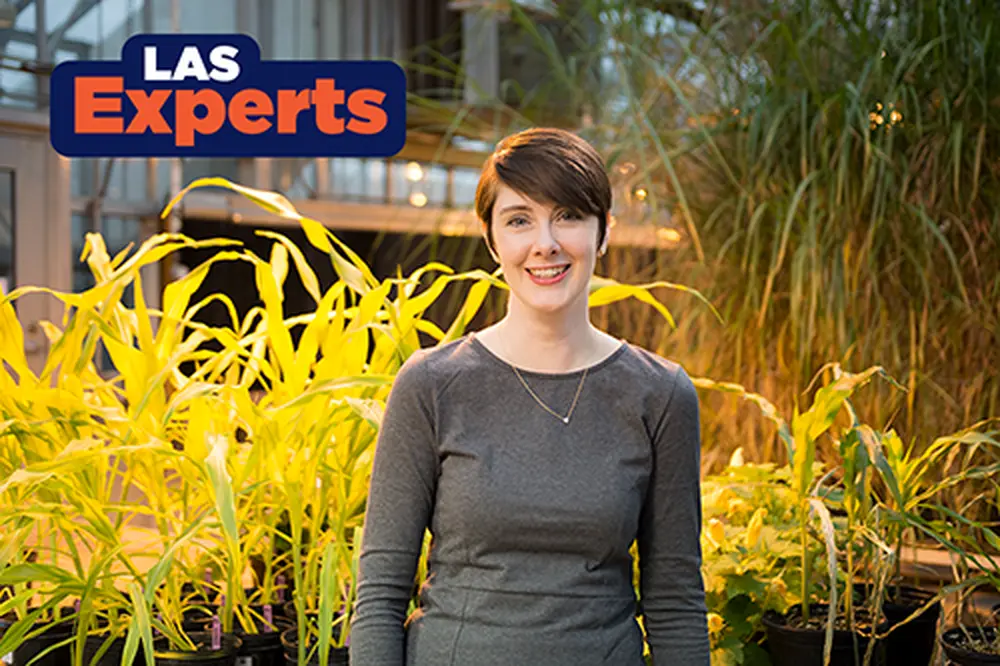
What is your area of expertise?
I study the molecular mechanisms that contribute to crop resilience to climate change using systems biology and mathematical modeling. I’m really interested in understanding what causes genes to turn on and off, like switches, in response to signals from the environment. If we can figure out that complex switchboard inside of the plant, we might be able to act as operators and leverage their natural mechanisms to help them keep pace with our rapidly changing climate. The Friedrich Wilhelm Bessel Research Award from the Alexander von Humboldt Foundation will support my upcoming sabbatical in Germany, where I will work with the PhenoRob Cluster of Excellence to link molecular data with macro-level phenotypes.
What are you working on now? Why are you passionate about this area of study?
We have a lot of fun projects going on right now in my group. In one project I really like, we dissected out six different cell types from a sorghum stem cross section at two developmental stages and performed transcriptome analysis, which is where you measure the expression of thousands of genes simultaneously. It was amazing to learn how diverse these transcriptomes are across space and time. Two cell types that are right next to each other express different genes that contribute to their unique functions, and those functions can change over time. We’re now learning what factors control these dynamic changes, and using modeling to uncover special features of those regulatory genes that we can use as molecular tools to synthetically express new genes in those cell types. This is part of the Department of Energy funded Center for Advanced Bioenergy and Bioproducts Innovation on campus.
What impact will your work have on your field and the community?
I think it’s too soon to tell what impact my work will have on the field, but most of the projects I work on are collaborative, and I believe that all the small things each of us work on will come together to make a more significant contribution to the field and the community. All of my collaborative projects are aiming to create crop ideotypes, or ideal plants, that can thrive under stressful environments. Some of our discoveries may eventually be translated into crops that growers want to grow, and I hope that they prevent yield loss under future climates.
How has your field changed since your career began?
...